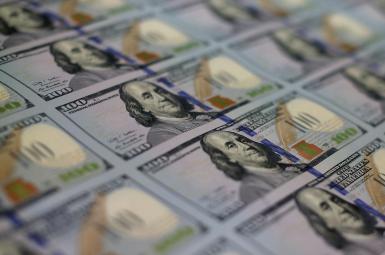
Q: Why does money have value?
A: Money doesn't have any inherent value. It is simply pieces of paper or numbers in a ledger. A car has value because it can help you get where you need to go. Water has a value because it has a use; if you don't drink enough of it you will die. Unless you enjoy looking at pictures of deceased national heroes, money has no more use than any other piece of paper.
It didn't always work this way.
In the past money was in the form of coins, generally composed of precious metals such as gold and silver. The value of the coins was roughly based on the value of the metals they contained, because you could always melt the coins down and use the metal for other purposes. Until a few decades ago paper money in different countries was based on the gold standard or silver standard or some combination of the two. This meant that you could take some paper money to the government, who would exchange it for some gold or some silver based on an exchange rate set by the government. The gold standard lasted until 1971 when President Nixon announced that the United States would no longer exchange dollars for gold. This ended the Bretton Woods system, which will be the focus of a future article. Now the United States is on a system of fiat money, which is not tied to any other commodity. So these pieces of paper in your pocket are nothing but pieces of paper.
So why does a five-dollar bill have value and some other pieces of paper do not? It's simple: Money is a good with a limited supply and there is a demand for it because people want it. The reason I want money is because I know other people want money, so I can use my money to others to get goods and services from them in return. They can then use that money to purchase goods and services that they want.
Goods and services are what ultimately matter in the economy, and money is a way that allows people to give up goods and services which are less desirable to them, and get ones that are more so. People sell their labor (work) to acquire money now to purchase goods and services in the future. If I believe that money will have a value in the future, I will work towards acquiring some.
Our system of money operates on a mutual set of beliefs; so long as enough of us believe in the future value of money the system will work. What could cause us to lose that belief? It is unlikely that money will be replaced in the near future, because the inefficiencies of a dual coincidence of wants system are well known. If one currency is to be replaced by another, there will be a period in which you can switch your old currency for new currency. This is what happened in Europe when countries switched over to the Euro. So our currencies are not going to disappear.
Then why else might we think that our money might not be of value to others in the future? Well, what if we believed our money wouldn�t be nearly as valuable in the future as it is today? This inflation of the currency causes people to want to get rid of their money as quickly as possible. Inflation, and the rational way citizens react to it, causes great misery for an economy. People will not sign into profitable deals which involve future payments because they�ll be unsure what the value of money will be when they get paid.Money is essentially a good, so as such is ruled by the axioms of supply and demand. The value of any good is determined by its supply and demand and the supply and demand for other goods in the economy. A price for any good is the amount of money it takes to get that good. Inflation occurs when the price of goods increases; in other words when money becomes less valuable relative to those other goods. This can occur when:
- The supply of money goes up.
- The supply of other goods goes down.
- Demand for money goes down.
- Demand for other goods goes up.
The key cause of inflation is increases in the supply of money. Inflation can occur for other reasons. If a natural disaster destroyed stores but left banks intact, we�d expect to see an immediate rise in prices, as goods are now scarce relative to money. These kinds of situations are rare. For the most part inflation is caused when the money supply rises faster than the supply of other goods and services.
So to answer your question, money has value because people believe that they will be able to exchange their money for goods and services in the future. This belief will persist so long as people do not fear future inflation. To avoid inflation, the government must ensure that the money supply does not increase too quickly.
